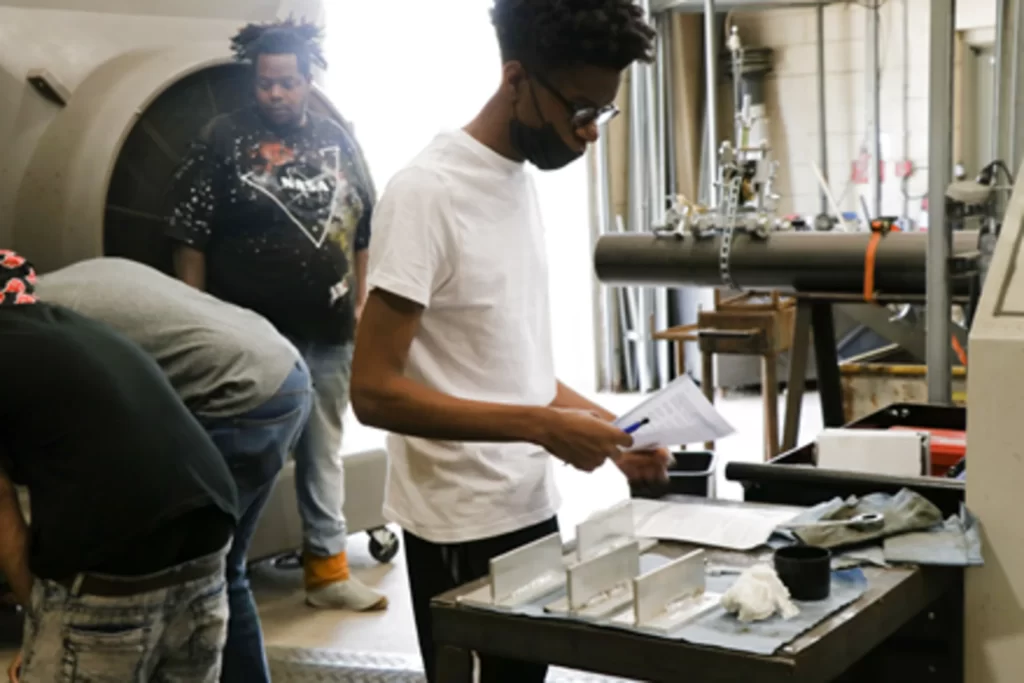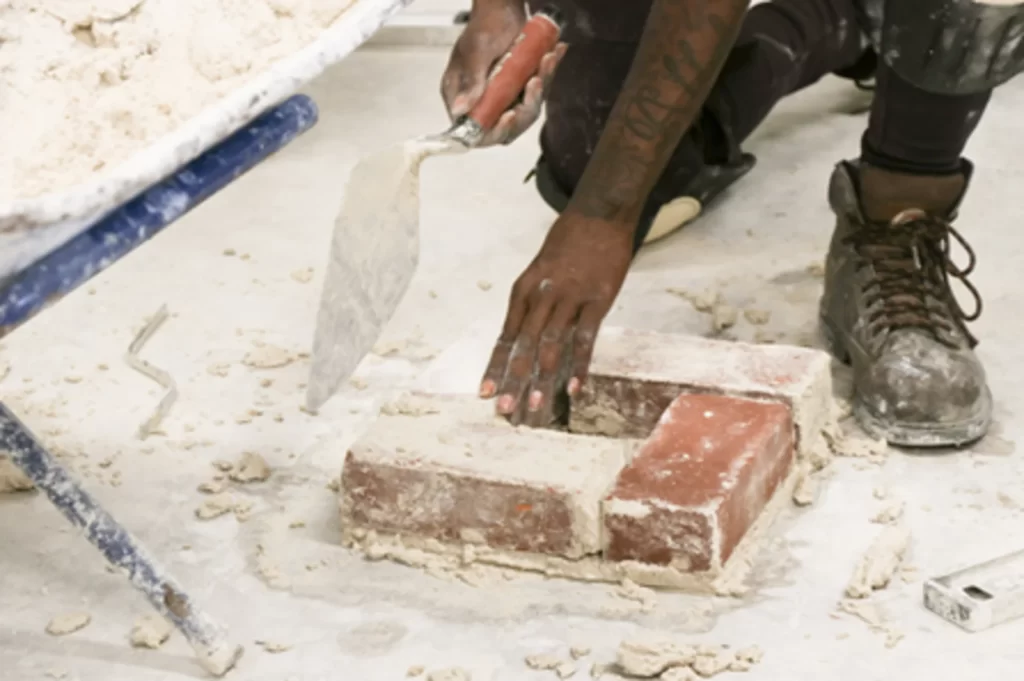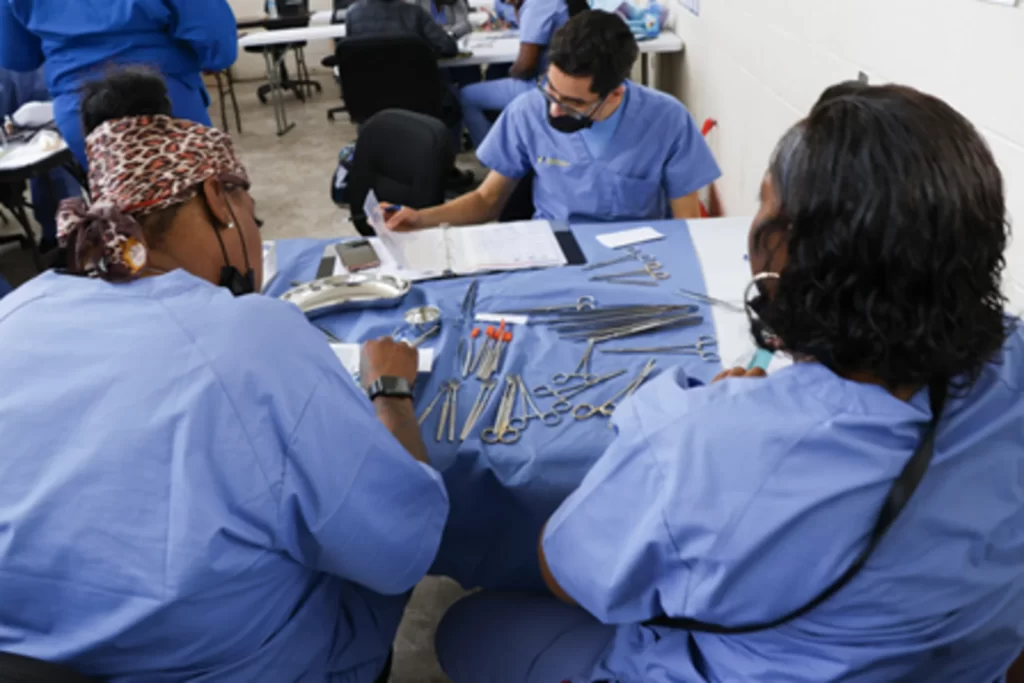Skilled trades are professions that require specialized knowledge, training, and experience in specific trades. These professions span various sectors, from manufacturing and construction to healthcare and technology. This article will look at the abilities and credentials required for several skilled trades.
Plumbers install, repair, and maintain plumbing systems in buildings and homes. One needs to be proficient in maths and can read blueprints and diagrams in order to become a plumber. Plumbing professionals also need to be familiar with safety rules and construction codes. They must possess strong problem-solving abilities, be physically active, and be able to work in small places. Plumbing is one of the trades jobs that are important to society. To become a professional plumber, one typically needs to complete an apprenticeship for plumbing and obtain a license.
Electricians perform one of the most critical skilled trades jobs. Electricians work with electrical systems, installing, repairing, and maintaining electrical wiring and components in buildings and homes. To become an electrician, one needs to be proficient in maths and can interpret blueprints and diagrams. In addition, building requirements and safety laws must be familiar to electricians. They must possess strong problem-solving abilities, be physically active, and be able to work in small places. One normally needs to complete an apprenticeship program and receive a license to become a professional electrician.

HVAC technicians install, repair, and maintain heating, ventilation, and air conditioning systems in buildings and homes. To become an HVAC technician, one must have a good understanding of math and be able to read blueprints and diagrams. HVAC technicians must also know building codes and safety regulations. They must possess strong problem-solving abilities, be physically active, and be able to work in small places. One usually needs to finish an apprenticeship program or earn a degree in HVAC technology to become a professional HVAC technician.
Welders work in manufacturing and construction, combining metal parts and components using heat and pressure. Good hand-eye coordination and the ability to read and understand plans and diagrams are prerequisites for becoming a welder. They must also have experience working with welding equipment, such as welding torches and guns. Welders must be physically fit and able to work in confined spaces. To become a professional welder, one typically needs to complete a welding vocational program or obtain a degree in welding.

Masons operate in the building industry, constructing buildings out of brick, stone, and other materials. Good math abilities and the ability to read and understand plans and diagrams are prerequisites for becoming a mason. Additionally, they must have previous experience using masonry tools like trowels, hammers, and chisels. Masons need to be physically active, capable of working in all types of weather, and skilled at solving problems. To become a professional mason, you must complete a construction training program or get a degree in masonry.
Automotive technicians analyze and fix issues with cars and other vehicles as part of their profession in the sector. One needs to be proficient in maths and can read and comprehend technical instructions and diagrams in order to become an automotive technician. They must also have experience working with automotive tools and equipment, such as wrenches, sockets, and diagnostic machines. One usually needs to complete an automotive technician program or earn a degree in automotive technology from a recognized technician school to work as a professional automotive technician.

Sterile processing technicians work in healthcare settings, sterilizing and preparing medical instruments and equipment for surgery and other medical procedures. Sterile processing is one of the crucial skilled trades jobs. To become a sterile processing technician, one must understand biology and medical terminology well. They must also have experience working with sterilization equipment, such as autoclaves and ultrasonic cleaners. Technicians that perform sterile processing must be meticulous, able to work quickly, and possess strong problem-solving abilities. To become a professional sterile processing technician, one typically needs to complete a sterile processing technician program and obtain a certification.

Drywall installers work in construction, installing and finishing drywall in buildings and homes. One needs to be proficient in math and able to read and comprehend designs and diagrams to work as a plasterboard installer. They must also have experience working with drywall tools and equipment, such as drills, saws, and tape measures. Drywall installers must be physically fit, able to work on ladders and scaffolding, and have good problem-solving skills. One usually needs to finish a plasterboard apprenticeship program or earn a degree in plasterboard installation to become a professional plasterboard installer.
In conclusion, skilled trades require specialized knowledge, training, and experience in specific trades. Masons, automotive technicians, sterile processing technicians, and drywall installers require unique skill sets and qualifications. To become a professional in any of these trades, individuals must complete specialized training programs and obtain certifications or degrees. These skilled trades play a vital role in society, creating the structures we live and work in, repairing our vehicles, keeping our medical equipment sterile, and finishing the interiors of our buildings. We can guarantee that these trades will grow and serve our communities for years to come by recognizing and appreciating the abilities and credentials required for them. PTTI is one of the best technician schools that provides vocational programs for skilled trades.
Read More: